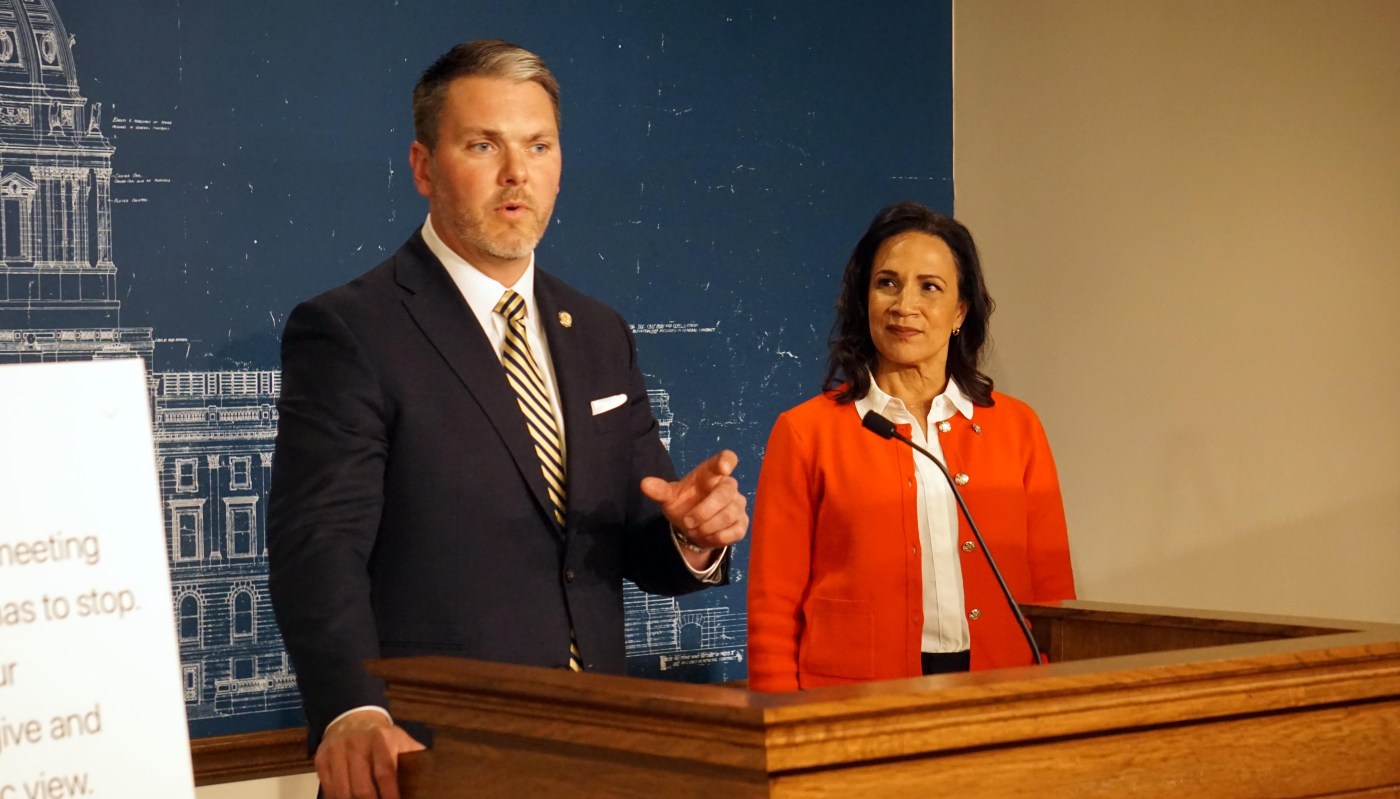
MN Legislature: GOP won’t pass infrastructure bill if DFL moves on ERA, gun control, other measures
With just a few days left for the Minnesota Legislature to pass bills, it’s still unclear whether there will be action on some of the biggest items at the state Capitol.
There’s still no sign of success in persuading Uber and Lyft to stay in the state, and a deal still needs to be made on close to a billion dollars in infrastructure investments. The last day to vote on bills is Sunday, and lawmakers can only hold floor sessions on four of those remaining days.
Republicans are using the limited time, and a supermajority threshold on public borrowing votes, to pressure DFLer majorities in control of the Senate and House to concede to some of their demands.
While action on rideshare isn’t on the list, their demands include dropping a bill to put a version of the Equal Rights Amendment to Minnesota voters that would put the right to an abortion and protections for gender identity and sexual orientation in the state Constitution.
Infrastructure bill
After a late night of filibustering on a DFL-backed bill to ban “junk fees” in the House, GOP leaders on Tuesday told reporters that they wouldn’t back a $900 million or so infrastructure bill unless DFLers leave behind the ERA amendment, gun control measures and offer more funding for rural emergency medical services.
“Bipartisanship is going to be the spoonful of sugar that makes this whole end of session go down,” said Sen. Minority Leader Mark Johnson, R-East Grand Forks, who briefed reporters on negotiations at a Tuesday capitol news conference with House Minority Leader Lisa Demuth, R-Cold Spring.
Despite being in the minority, borrowing money for infrastructure, which traditionally happens in even-numbered years, requires a three-fifths majority in both chambers in order to pass. That’s one of the few leverage points available to Republicans — though it doesn’t just inconvenience DFLers. If Republicans kill a bonding bill it means they won’t be able to deliver local projects in their districts either.
In a joint statement Tuesday, House Speaker Melissa Hortman, DFL-Brooklyn Park, and Senate Majority Leader Erin Murphy, DFL-St. Paul, called Republican demands unreasonable and said that emergency services funding and the bonding bill remain a priority.
House Speaker Melissa Hortman (Courtesty photo)
“Republicans have jeopardized the completion of important work by intentionally throwing up roadblocks and delays on the floor, in negotiations, and again today by attempting to score political points with the press and public,” the leaders said.
ERA amendment, bonding bill
The Equal Rights Amendment’s prospects are already dimming as time runs out. The House had planned to take that up Tuesday but tabled the measure after hours of Republican filibustering. The Senate has already passed a version of ERA, though it’s unclear if they’d accept a version that includes abortion.
“Democrats right now in the House are spending their time passing bills … a lot of them have no chance of passing in the Senate,” said House Minority Leader Lisa Demuth, R-Cold Spring.
There isn’t a vast gap between the DFL and GOP bonding bill proposals. Republicans want $860 million in borrowing and $30 million in cash for projects across the state, with a preference for heavy infrastructure projects. As of last Friday, the DFL targets include $930 million in borrowing and about $30 million in cash.
Senate Majority leader Erin P. Murphy. (Courtesy of the Minnesota Senate)
Past the ERA amendment, boosting funding for emergency services and new bonding targets, GOP lawmakers are pushing to remove gun control language from a bill increasing criminal penalties for people who buy guns for others who are ineligible to do so, such as felons.
While both parties support increasing penalties for what’s known as straw purchasing, Republicans oppose DFLers inclusion of language banning binary triggers, a modification that allows a semi-automatic weapon to fire both when the trigger is pulled and released – greatly increasing its rate of fire.
Republicans also don’t want the state to have a public buy-in option for Minnesota Care. Some DFL lawmakers this session have been pushing for greater access to the state’s public health insurance system.
Rideshare bill
One issue at the Legislature likely to have the most immediate impact on Minnesotans is for now not tied to end-of-session negotiation points outlined by Republicans Tuesday.
Uber and Lyft have said they’ll pull out of Minnesota under a bill that would set the statewide minimum wage for ride-hailing drivers at $1.27 per mile and $0.49 per minute.
DFLers last week announced the bill as a compromise with the Minneapolis City Council, which earlier this year passed an ordinance setting the minimum wage at $1.40 per mile and $0.51 per minute in city limits — prompting the ride-hailing services’ initial threats to leave.
The Senate Finance Committee approved that bill on partisan lines Monday, with all Republicans opposed. It has not yet been scheduled for a floor vote.
Related Articles
MN Secretary of State announces new location for candidate filings
Anderson, Lunneborg, Donaldson: State law needs a tweak this year so Lakeview Hospital project can proceed
Minnesota House delays vote on constitutional protections for abortion, LGBTQ rights
Minnesota expunges 58,000 low-level cannabis offenses from state records
Minnesota officially raises new state flag, seal


